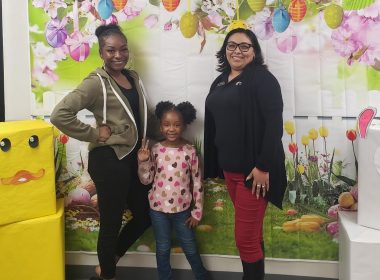A Salvationist reflects on Multiculturalism
by John Marion
As a member of Generation Y, I grew up in an incredibly multicultural society. My primary school classes were full of children from different cultures, my first best friend was a Malaysian boy, and my education stressed the benefits of diversity and the necessity of tolerance. I was also blessed to grow up in a household where racism never reared its ugly head, and amongst my friends (including first and second generation Australians) bigoted attitudes were never accepted, and even strongly challenged.
My experience of multiculturalism is in no way unique. As mentioned above, tolerance and cultural diversity are heavily stressed in the post-modern education experience, and society has moved in such a way that open intolerance and racism are condemned as multiculturalism is embraced. That is not to say that racism is dead and buried in our society; indeed, it often presents not in action but in attitude. A recent story in The Age noted that over a third of people surveyed said that there were some cultural groups that did not fit in with Australian society, including Middle Eastern, Islamic and Asian groups.
I strongly believe that cultural diversity makes us a stronger community, even more so when we consider the Church. Recently, I attended the World Youth Convention in Sweden with over a thousand young Salvationists from all over the world. The most resounding impression that the delegates from our territory came away with was the amazing cultural diversity of the Army. Worshipping with people from nearly 100 countries, in many languages and styles, and hearing their experiences and of their faith, reminded me that my culture’s understanding of the gospel is not fully complete, and that there is much to learn from other cultures’ experiences of the message in their context. As Paul tells us, there are no racial distinctions in the body (Gal. 3:28), and so there is a place for all in our churches.
However, sometimes when I look at The Salvation Army in my division, I do not see this diversity. It is true that there are many corps that are engaged with many various cultures, and I can think of many corps that engage with African migrants and refugees. Sadly, there are many corps where the diversity and multiculturalism of their local communities is not reflected in their congregations. The vast majority of the leadership and officers of The Salvation Army are Caucasian. I understand that there are many historical and cultural reasons for this, but we must be striving to increase diversity and to empower those who may have been excluded through negative attitudes in the past.
How do we achieve greater diversity in The Salvation Army? I strongly believe that the Army does not need to change from the top down, but from the soldiers up. I do not believe that we necessarily need to establish specific programs to reach out to different cultural groups (though I know that our Chinese, Indigenous and African congregations do fantastic work), but perhaps we can instead start to reach people as we each become willing to meet and build relationships with those who are different from us. This may push us out of our comfort zones and require us to be open-minded and sensitive to cultural differences, but I truly believe that our purpose of bringing Christ’s salvation to whosoever demands this of us.
I would be very interested to hear people’s experience of cultural diversity in their local settings. Has your corps had success in reaching a diverse community? What are some of the challenges you face? I would also be interested to hear from people from different cultural backgrounds who have come to the Army, and learn from their experiences.
Respond to the author at https://tctoday.net/2010/09/20/multiculturalism-and-the-salvation-army/. New Frontier is also interested in your experiences; respond to new.frontier@usw.salvationarmy.org.










